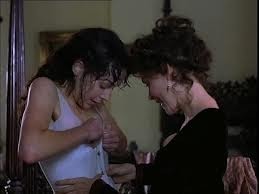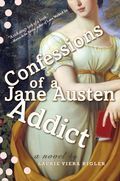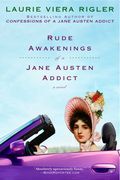Laurie Viera Rigler's Blog: Jane Austen Addict, page 9
December 4, 2014
Holiday Readathon Giveaway (& De-Stress Central)
We’ve all said it: "This year is going to be different. This year I refuse to get stressed out during the holidays."
We at Austen Addict Central would like to help you keep that promise.
We've got tips to help you melt away the stress of the holidays. We've also got a HOLIDAY READATHON DE-STRESSING PRIZE PACK that may just have your name on it.
FOR A SUPER-FAST WAY TO ENTER: Choose the "Click & Enter" option in the Rafflecopter below. Then click on the little green box.
FOR 5 MORE CHANCES TO WIN:
Choose the “Leaving a comment” option in the Rafflecopter below.
Then, scroll down to the comments and share:
***Your go-to, feel-good read; and/or
***Your favorite way to pamper yourself; and/or
***Your favorite way to shine a little happiness on others.
HERE's MY LIST:
My go-to read(s) that make me feel right with the world again:
Persuasion by Jane Austen--because it's all about second chances that arrive when you least expect them.
The Journeys of John and Julia: Genesis by Aurelia--because it's all about the magic that's all around us, whether or not we believe it's so.
Any of Jane Austen's other major works, because they are highly entertaining and deeply satisfying on many levels.
My favorite relaxing indulgence(s) that help me remember what this season is all about:
Merry Christmas essential oil blend by Dharmaceuticals. I diffuse it in my aroma lamp every day as soon as the season starts, all the way through New Year’s Day. I started buying this blend two years ago, and it was the first time I could remember having stress-free holidays. I’m not kidding: this is magic in a bottle. It makes me feel all warm and fuzzy inside. And it fills my home with the most intoxicating blend of cinnamon, vanilla, and a host of other delicious scents.
I also love the comforting familiarity of my favorite feel-good movies. I’ll watch as many as I have time to do. Love, Actually; The Apartment, Four Weddings and a Funeral, Bend it Like Beckham, Persuasion (the one with Ciaran Hinds and Amanda Root), and Bride and Prejudice are just a sampling of my go-to’s. If it’s about the power of love and friendship, then count me in.
My favorite ways to shine happiness on others:
Cooking holiday meals and treats for friends and family.
Sharing my good fortune by making a donation to organizations who help homeless adults and children. An excellent organization to which I donated this year is Union Station Homeless Services, which does good work in my very own town of Pasadena, CA.
Check out more mini-challenges, giveaways, and ways to give back at the annual Holiday Readathon, hosted by WhoRUblog.com.
October 16, 2014
Writing With Power, Thanks to Wonder Woman (and Amy Cuddy).
After the New York Times recently profiled Amy Cuddy's famous TED talk on "power posing," I followed in the footsteps of 4 million other folks and watched it. And it is brilliant.
The big takeaway is one of those rare things: It's not just a quick fix: it is a profound practice that creates instant results.
Here it is, the "Wonder Woman" power pose that everyone should do two minutes a day. And especially before any situation in which your work or who you are or how you present yourself is to be evaluated by others. You'll walk in feeling confident, powerful, the master of your world.
But how about those times when it's your own inner critic that does the evaluating? I've been doing the Wonder Woman pose before sitting down to work on my novel, and I'm happy to report that it's very effective.
I'm thinking of trying the costume as well.
[photo from Harvard Business School hbs.edu]

June 14, 2014
Mansfield Park: First Impressions, Shifting Loyalties (and a giveaway)
When I first read what many consider to be Austen’s most controversial novel, I wasn’t thrilled. Although I have developed, over the years, a deep admiration for this work, in some respects my first impressions of Mansfield Park remain intact today. For Mansfield Park differs from Austen’s other major works in a few significant ways.
The most striking, and, to this reader, the most challenging difference, is its heroine, Fanny Price. She, unlike all of the other Austen heroines, is not someone that most readers would like to be. Even those who admire Fanny’s moral fortitude are more likely to imagine themselves as the “light, and bright, and sparkling” Elizabeth Bennet or the quietly steadfast Anne Elliot. Austen may have thought of Emma as “a heroine whom no one but myself will much like,” but at least the self-important, self-appointed queen of Highbury has an enviable degree of autonomy and power that few ladies of her day could boast, while Fanny is, as Mrs. Norris enjoys reminding her, always “the lowest and last.” She is also not remotely what anyone would call the life of the party. In fact, I can think of but one instance in the entire novel where the timid, fearful, and nearly humorless Fanny Price is even tempted to laugh at a joke.
In Fanny’s defense, she didn’t exactly choose the path that formed her personality. Not only was she torn from her childhood home (and her horribly negligent parents) at a young age, she was then systematically suppressed and oppressed by the powers-that-be at Mansfield Park. It’s no wonder that such early and continuing life experiences would produce the antithesis of a lighthearted young woman. Fanny thinks seriously, enjoys seriously, suffers seriously.
Mary Crawford, however, is a different story. Lively and brimming with humor, Mary is Fanny’s polar opposite. Although she is set up as Fanny’s rival in love and the anti-heroine of the piece, Mary has a definite appeal that plays with reader loyalties. She may be the worst sort of material girl, but at least she’s up front about it. And despite her self-confessed selfishness, Mary has a great capacity for affection, especially for her brother and sister. She is also compassionate towards Fanny (though her kindness is often cluelessly misdirected). Most important, at least for this reader, Mary has a sense of humor. And quite a wicked one. Who could forget her infamous pun on “rears and vices” or her “What gentleman among you am I to have the pleasure of making love to?” It is interesting to note that Austen scholar Emily Auerbach, author of Searching for Jane Austen, has compared several lines of Mary’s dialogue with lines from Jane Austen’s own letters and makes a convincing argument that in some respects, Mary’s lively social persona may indeed bear a stronger resemblance to the author than her morally upright heroine.

[The lion and the lamb: Fanny Price (played by Frances O'Connor) and Mary Crawford (played by Embeth Davidtz) in the adaptation by Patricia Rozema]
Mary is, above all, a social firecracker, and lord knows the staid atmosphere of Mansfield Park could do with a bit of shaking up. After all, this is a place where the introduction of home theatricals (Quick, fetch my aromatic vinegar!) not only gets Fanny’s knickers in a twist, but also those of her like-minded cousin, Edmund Bertram, the elusive object of her affections.
Which brings to mind two more significant differences between this novel and Austen’s other major works.
First and foremost of the two is Edmund, the hero of Mansfield Park. Second is the aforementioned play. Edmund was, and still is, at least for this reader, the most unappealing of Austen’s heroes. Even Sense and Sensibility’s Edward Ferrars, who not only had the poor taste to engage himself to Lucy Steele, but also misled Elinor into believing he was still on the market, doesn’t even come close to Edmund. Yes, Edmund was kind to Fanny when she was a child. But his obliviousness to her romantic feelings for him, his throwing in her face his blind preference for Mary Crawford, and his self-righteous prudishness, outweigh his often powerless attempts to mitigate Fanny’s subservient role at Mansfield Park.
Then there is the play. While one of the delights of reading Austen is the timelessness of its themes, so is the exoticism of its long-ago manners, mores, and window dressing. Guys in tight pants and long-tailed coats? Yes, please. Carriage rides? Count me in. Entailing an estate? Okay, that needed a bit of explaining. But putting on a play at home for one’s family and a couple of neighbors equals highway to hell? That just doesn’t translate to a modern reader. Even the Mansfield Park characters themselves are split as to whether or not they are doing anything objectionable. One needs to do considerable cultural detective work for any of it to make sense to a twenty-first-century reader. It is only then that one has any chance of understanding that putting on this particular play (Lovers’ Vows) with this particular group of people in this particular situation (especially the female players, who are single, one newly engaged, and whose father is far from home) would be the modern equivalent of a group of sheltered teens planning an unauthorized and semi-wild party in their strict parent's home while said parent was out of town.
Not that I understood any of that when I first read Mansfield Park.
Despite my issues with the novel, I was so smitten with Austen’s other five major works that I knew in my heart to stick with Mansfield Park until it began to reveal its treasures. It is, after all, a work by Jane Austen, whose other productions have continued to delight and reveal new layers of storytelling mastery and wisdom with each successive reading. Which is why I faithfully reread Mansfield Park again and again, trusting that Austen’s genius would eventually become clear to me in this work.
After several readings, new vistas began to open up. Slowly I began to see Mansfield Park as uniquely masterful, despite its challenging heroine and hero. Slowly I began to understand that, in fact, the very act of juxtaposing such a pair with their amoral counterparts in the form of Mary Crawford and her brother Henry was a great part of its genius.
Fanny and Edmund may be a pretty unexciting pair on their own, but coupled with Mary and Henry Crawford, who are unendingly fascinating to watch, Fanny and Edmund are rendered interesting. The respective effects that these two paragons of virtue have on the bad boy and bad girl of Mansfield Park give the story its engine, and thus Mansfield Park takes us on a complex and fascinating journey of rivalries, jealousies, and unlikely pairings and unpairings between Fanny, Edmund, and the Crawfords, with a good deal of conflict thrown into the mix in the form of Edmund’s sisters vying for Henry’s affections. There is an incomparable sophistication to the plotting and style of this novel, which is filled with suspense, a suspense that transports this reader no matter how many times it is read. That suspense is such that I have often wondered to what degree the author herself might have been in the dark as to how the book would end, and which characters would end up with one another.
While the other books in the canon could have only ended as they did, Mansfield Parkstands alone as the one novel that truly “could have all turned out differently,” as stated in the voice-over of the much-debated film adaptation by Patricia Rozema.Mansfield Park is the only one of the canon where we as readers can spend hours, days, or weeks hotly speculating alternate histories and defending our respective points of view: What if Fanny had said yes to Henry? Would he have reformed? Would he have resisted the impulse to soothe his vanity by flirting with Maria? Or would he have carried on as before once he completed his conquest of Fanny? Can true love reform a rake? Or tame a material girl? If, indeed, what they feel is true love? What if Edmund had married Mary? Would he have loosened up a bit more, and would she have learned to be a bit more comfortable with the idea of being the wife of a clergyman? Or would she be forever nagging Edmund to live a more expensive and worldly life?
These are questions we can debate forever, for Mansfield Park cleverly does not provide us with definitive answers but rather leaves those questions tantalizing open.
Mansfield Park also has some powerful sensory description—only Persuasion comes close to it. This element of style is particularly noteworthy, as Austen has often been admired for her economy of words, and her works are typically spare of physical detail. She did, after all, write for her contemporaries, who could fill in the rest with their experiential knowledge of the period. In Mansfield Park, there is still that controlled economy of words, but the physical descriptions which Austen chose to include are woven so skillfully and organically into the plot that they enhance rather than slow down the action. Take the amber cross and the chains, which serve as metaphors for which of Fanny’s friends is all flash and deception, and which is the perfect fit. Or the locked gate and the oppressive heat of the grounds of Sotherton, which denote Maria’s feelings of being closed in and foreshadow her recklessness in freeing herself. Or the treasures in Fanny’s freezing attic room reminding her of the kindnesses of her family and her feelings of obligation to them, while at the same time underscoring the coldness of her isolation and inferior position in the household.
In the face of all that isolation, I grew to respect and even admire Fanny Price. Here is a woman who has been told since childhood that she is the lowest of the low, and yet she has the backbone to stand up to the biggest and most formidable male authority figure in her life, the person under whose very roof she lives, and say No to what he and everyone around her wants her to do—simply because she follows her inner guide. “We have all a better guide in ourselves, if we would attend to it, than any other person can be.” These are Fanny’s words, and they comprise what is perhaps my favorite Austen quotation of all.
It is not only Fanny’s strength that earned my respect, it is her flawed humanity. The more I thought about this troubled heroine, and the more I understood about The Play in its cultural and social context, the less I was able to dismiss Fanny as nothing more than a buzz-killing Miss Perfect. After all, for much of the story, she is eaten up with jealousy as she watches Edmund fall for Mary, most especially during their interactions regarding said play—and who among us has not struggled with that singularly ugly emotion? Fanny’s jealousy and insecurity make her far from perfect, and all too human.
Fanny may not be the life of the party, but she’s got generosity and compassion, even for her worst oppressors. Most of all, she possesses a strength that few could rival. She even has the courage to risk bringing up the slave trade as a topic of conversation with a family who likely benefits from that trade—and is answered with the resultant “dead silence.” She may not excel in the sort of sparkling social conversation that Mary has mastered, but in the final analysis, Fanny’s qualities count for a great deal more.
[NOTE: There is a giveaway connected with this post, which was written for the Jane Austen Society of the Netherlands' celebration of the bicentennial of Mansfield Park. To enter the giveaway of the British editions of Confessions of a Jane Austen Addict and Rude Awakenings of a Jane Austen Addict, go to janeaustensociety.nl)

April 3, 2014
Slate.com explores the practice of dueling
Slate's Troy Patterson has written a fun piece on the long-outlawed practice of dueling and what alternatives a man might resort to today. Such as an Inuit song duel, for example.
It's full of interesting historical tidbits on dueling, which was outlawed in the sixteenth century but endured for three more centuries.  Even the flannel-waistcoat-wearing Colonel Brandon of Sense and Sensibility did it. (His line "we met by appointment, he to defend, I to punish his conduct" was code for facing each other at dawn, swords drawn). Which, I susprect, is the real reason Marianne Dashwood agreed to marry him.
Even the flannel-waistcoat-wearing Colonel Brandon of Sense and Sensibility did it. (His line "we met by appointment, he to defend, I to punish his conduct" was code for facing each other at dawn, swords drawn). Which, I susprect, is the real reason Marianne Dashwood agreed to marry him.

January 16, 2014
Happy Cat Thursday
Did you know that today is Cat Thursday? Join in at The True Book Addict.
This was my kitty, a rescue from the Pasadena Humane Society who brought eight years of joy to our lives. She made us laugh:
...she taught us how to relax:
...and she was always ready for a cuddle. She was the most affectionate, sweetest kitty I have ever known.

December 17, 2013
What would my life be like without Jane Austen?
Several writers, including myself, explored this question in honor of Jane Austen's birthday yesterday. Head on over to My Jane Austen Book Club to check out our answers and to enter a HUGE giveaway.

December 3, 2013
Holiday Readathon Challenge + Giveaway!
 At this time of year, it is easy to get caught up in stress. At this time of year, it is easy to forget that this time of year is really all about love. To help me remember, I turn to my favorite books and films. They melt away my stress and affirm my faith in love.
At this time of year, it is easy to get caught up in stress. At this time of year, it is easy to forget that this time of year is really all about love. To help me remember, I turn to my favorite books and films. They melt away my stress and affirm my faith in love.
During the holidays, what is your go-to book or film for affirming your faith in love?
Your answer could win you signed copies of both of my Austen Addict novels.
Leave your answer in the comments below.
Tweet your answer @austen_addict for an extra chance to win.
This giveaway is international. 

Here are just of a few of my go-to's for affirming my faith in love:
PERSUASION by Jane Austen, the novel and the film starring Ciaran Hinds and Amanda Root
PRIDE AND PREJUDICE by Jane Austen, the novel and the miniseries starring Colin Firth and Jennifer Ehle
NORTHANGER ABBEY by Jane Austen, the novel and the film starring Felicity Jones and JJ Feild
LOVE ACTUALLY, the film starring Colin Firth, Emma Thompson, Alan Rickman, Hugh Grant, Keira Knightley, and many more
BEND IT LIKE BECKHAM, the film starring Parminder Nagra, Keira Knightley, and Jonathan Rhys Meyers
NOTTING HILL, the film starring Julia Roberts and Hugh Grant.
What are yours? Enter your answer below, tweet for another chance, and good luck!
Go to WhoRuBlog, sign up for the Holiday Readathon, and enter a lot more giveaways!
(If anyone encounters a glitch while posting a comment, please contact me at laurieATjaneaustenaddict.com)

November 27, 2013
The Holiday Readathon is almost here!
 Can you believe it's that time again? The annual Holiday Readathon, hosted by WhoRuBlog, is all about celebrating the joy of reading and sharing that happiness with others. Plus there are tons of prizes you can win.
Can you believe it's that time again? The annual Holiday Readathon, hosted by WhoRuBlog, is all about celebrating the joy of reading and sharing that happiness with others. Plus there are tons of prizes you can win.
Sign up for the fun at WhoRublog. Be inspired. Answer the mini-challenges of participating guest authors and bloggers. I'll be participating and doing a giveaway, too, so stay tuned...

October 16, 2013
Jane Austen and David Mamet?
My first clue should have been the fact that "The Winslow Boy" was one of those films I never seem to tire of watching. Then again, so were many other Mamet films, e.g. "The Spanish Prisoner" and "Glengarry Glen Ross." (I remember shopping for a sofa once and bonding with the salesman over the latter, which we were almost compulsively quoting to one another).
I always just assumed what made "The Winslow Boy"stand out somehow was the period setting. But that wasn't true. I'd seen "Boston Marriage," after all. No, it was the way I felt at the end of it. Uplifted. I couldn't say that about "Glengarry Glen Ross," that's for sure.
There were many things about "the Winslow Boy" that I found uplifting. But the most intriguing aspect was the romance. Subtle, subtextual, but romance nonetheless. Between a reserved man of great power and a woman who has some very strong opinions against him.
Sound familiar? That's right, "Pride and Prejudice." It hit me tonight, after watching the film for perhaps the fifth time. There are other similarities between "The Winslow Boy" and "Pride and Prejudice," but I won't spoil it for you.
Do see it for yourself. It stars the incomparable Jeremy Northam (can we ever forget his Mr Knightley in the Douglas McGrath"Emma"?), Rebecca Pidgeon, Nigel Hawthorne, and Gemma Jones (she played Mrs Dashwood in the Ang Lee "Sense and Sensibility.")
"The Winslow Boy" is based on real events, adapted by David Mamet from the play by Terence Ratigan, and directed by Mamet as well.

September 9, 2013
Jane Austen Addict
- Laurie Viera Rigler's profile
- 311 followers










